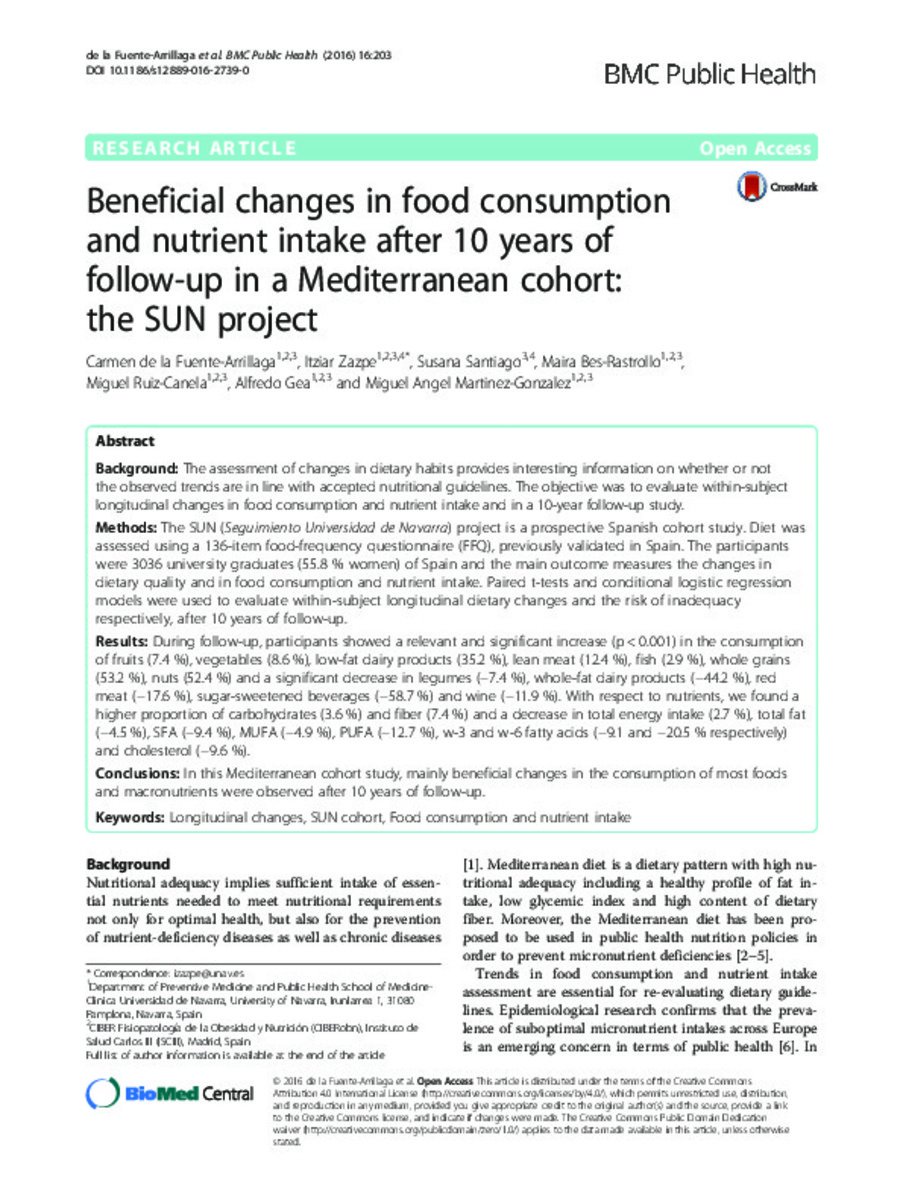Beneficial changes in food consumption and nutrient intake after 10 years of follow-up in a Mediterranean cohort: the SUN project
Palabras clave :
Materias Investigacion::Ciencias de la vida::Metabolismo
Materias Investigacion::Ciencias de la Salud::Endocrinología
Nutrient intake
Food consumption
SUN cohort
Longitudinal changes
Fecha de publicación :
2016
Editorial :
BioMed Central
Proyecto:
the University of Navarra
the Spanish Ministry of Health and European Regional Development Fund (FEDER) (Grants PI10/02993, PI10/02658,PI13/00615, PI14/01668, PI14/ 01798, PI14/01764, RD06/0045,G03/140),
The Seguimiento Universidad de Navarra (SUN)
the Navarra Regional Government (45/2011, 122/2014)
Cita:
Fuente-Arrillaga C, Zazpe I, Santiago S, Bes-Rastrollo M, Ruíz-Canela M, Gea A, et al. Beneficial changes in food consumption and nutrient intake after 10 years of follow-up in a Mediterranean cohort: the SUN project. BMC Public Health 2016;16:203
Aparece en las colecciones:
Estadísticas e impacto
0 citas en

0 citas en

Los ítems de Dadun están protegidos por copyright, con todos los derechos reservados, a menos que se indique lo contrario.








